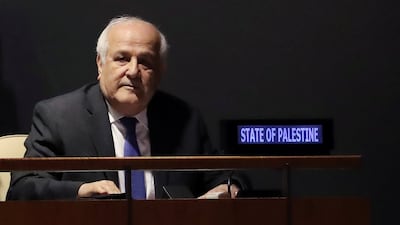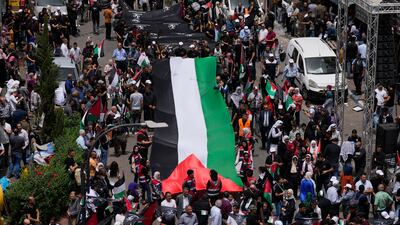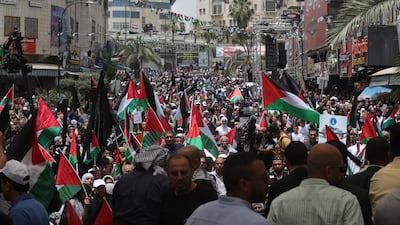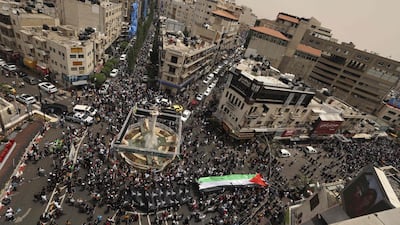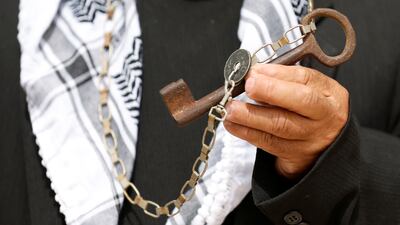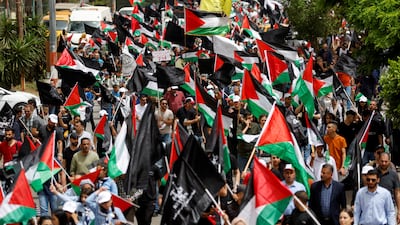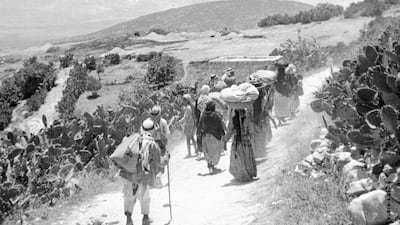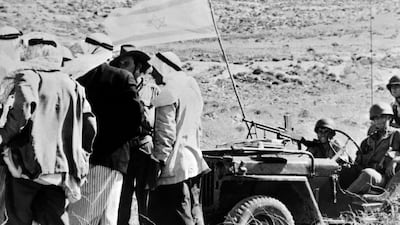The UN General Assembly on Wednesday adopted its first resolution to commemorate Nakba Day, the “day of catastrophe”, when Palestinians were driven from their homes in 1948 following the foundation of Israel.
A total of 90 states voted in favour of the resolution while 30 were against, including the US, the UK, Germany and Canada. Forty-seven countries abstained.
Co-sponsored by Saudi Arabia and the United Arab Emirates amongst others, the resolution was adopted towards the end of a year in which Palestinian-Israeli violence has surged in the West Bank.
“Today, this General Assembly will finally acknowledge the historical injustice that befell the Palestinian people, adopting a resolution that decides to commemorate in this General Assembly Hall the 75th anniversary of the Nakba,” Palestinian UN envoy Riyad Mansour told the UN's 193 member countries.
“Our people deserve recognition of their plight, justice for the victims, reparation for their loss and fulfilment of their rights.”
The resolution, included in a series of other Palestinian motions, calls for the commemoration of the Nakba at the General Assembly Hall in 2023, and the dissemination of relevant archives and testimonies.
Each year on May 15, Palestinians remember the events leading up to the creation of Israel in 1948 that would claim hundreds of lives and affect many generations in the years that followed.
“Seventy five years ago, a very different General Assembly adopted a resolution partitioning Palestine without ever consulting the people of Palestine,” Mr Mansour said.
He said that, 75 years later, Israeli policies were still uprooting Palestinians, with seven million refugees part of the global diaspora.
Mr Mansour warned that the two-state solution had reached “the end of the road”.
“Either the international community summons the will to act decisively or it will let peace die passively,” he said.
He also called on the international community to pressure Israel and for the UN to grant the Palestinians a state, with East Jerusalem as its capital.
Israel’s UN representative, Gilad Erdan, accused the body of spreading a “false” narrative about the Nakba, which he said the Palestinians caused by refusing to accept the partition plan.
“By supporting resolutions that single out, condemn and vilify Israel, you are telling the Palestinians that their path of incitement and terror-funding truly pays off,” Mr Erdan said.
Also addressing the body was Csaba Korosi, president of the 77th session of the General Assembly.
Mr Korosi implored the international community to help “break the vicious circle of hatred and violence” and shift the dynamics from disagreement to engagement.
“As said by Mahatma Gandhi, 'An eye for an eye only ends up making the whole world blind,” he said. “Let us give young people a reason for hope.”
On Tuesday, UN Secretary General Antonio Guterres called for the occupation to end.
Mr Guterres blamed the conflict on occupation, settlements, home demolitions, evictions and closures of Gaza crossings.
He also underlined his commitment to a two-state solution.
“The United Nations’ position is clear — peace must advance, the occupation must end,” he said.
Tor Wennesland, the UN envoy to the Middle East, on Monday warned that the Palestinian-Israeli conflict was “reaching a boiling point”.
This year is on course to be the deadliest for Palestinians in the West Bank since the UN started tracking deaths in 2005.
The UN says that Palestinian refugees live mainly in territory occupied by Israel since 1967, including East Jerusalem, in neighbouring Arab states and in camps in the region.
